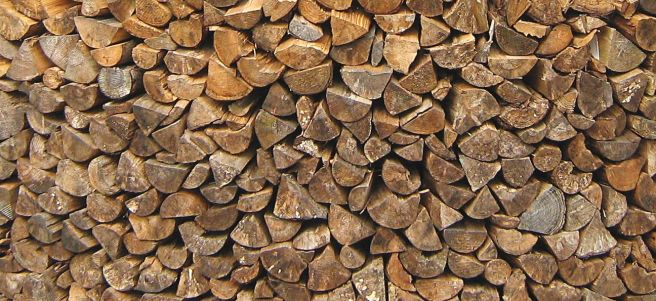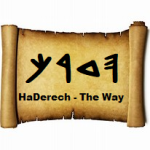
Leviticus 6:8 Then the Lord spoke to Moses, saying, 9 “Command Aaron and his sons, saying, ‘This is the law for the burnt offering: the burnt offering itself shall remain on the hearth on the altar all night until the morning, and the fire on the altar is to be kept burning on it. 10 The priest is to put on his linen robe, and he shall put on undergarments next to his flesh; and he shall take up the ashes to which the fire reduces the burnt offering on the altar and place them beside the altar. 11 Then he shall take off his garments and put on other garments, and carry the ashes outside the camp to a clean place. 12 The fire on the altar shall be kept burning on it. It shall not go out, but the priest shall burn wood on it every morning; and he shall lay out the burnt offering on it, and offer up in smoke the fat portions of the peace offerings on it. 13 Fire shall be kept burning continually on the altar; it is not to go out. (NASB 1995)
The least known of all the appointed times (Heb. mo’edim) is the Offering of Wood (Heb. Korban Etzim). To learn more about what korban means; see here (note that wood is overlooked). As Torah clearly states above, the sacrificial altar and the fuel to keep it burning perpetually had to be provided for in some manner. Unfortunately, the calendrical passages describing when this event would occur would be lost to history if it were not for the discovery of the Dead Sea Scrolls, most of which are warehoused and/or on display at the Rockefeller Museum and the Shrine of the Book in Jerusalem. Four scrolls mention this mo’ed: The Temple Scroll (11Q19), the Reworked Pentateuch (4Q365), and portions of the priestly courses (Heb. mishmarot) in 4Q325 and 4Q327; the definitive date is contained in the latter:
“After the Feast of New Oil is the Feast of the Offering of Wo]od.” (4Q325, Fragment 1, Column 3) from p.350 of “The Dead Sea Scrolls in English” by Geza Vermes
4Q327 is more definitive:
“[On the twenty-firs]t (day) in (the
fifthSIXTH month) is a Sabbath. On the twenty-second (day) in (thefifthSIXTH month) is the Festival of Oil. Af[ter the sab]bath … is the Offeri[ng of Wood].” (4Q327, Fragment 1, Column 2) Ibid.
Note: Corrections were made from the reconstructed Qumran calendar. There is no weekly Sabbath on the twenty-first day of the fifth month, but there is in the sixth. As we will discover, Vermes based his translation on the incorrect practice recorded by “rabbinic sages” in the Talmud, where this festival was observed in the fifth month of the Masoretic ecclesiastical calendar known by its Babylonian name Av.
As was presented last week, the Feast of New Oil (Heb. Chag Yitzhar) occurs on the twenty-second day of the sixth month — 49 days after the Feast of New Wine (Heb. Chag Tirosh), and as is stated above, the Wood Offering occurs “after the Feast of New Oil” (4Q325) and “after the (weekly) Sabbath” (4Q327). This means that it occurred on the twenty-ninth of the sixth month on the first day of the week. When reconciling that date with the pagan Gregorian calendar, that coincides with the “evening” of 9/14 and the “morning” of 9/15 during non-leap years and the “evening” of 9/15 and “morning” of 9/16 during leap years.
One additional piece of information leads up to the culmination of the festival itself; this is documented in the Reworked Pentateuch:
“And the Lord [lit. Yahoah] said to Moses, ‘Command the children of Israel, saying: When you enter the land which I am giving to you as an inheritance, and you dwell upon it securely, you shall bring wood for a burnt-offering and for all of the service of [the H]ouse which you shall build for Me in the land, to lay it on the altar of burnt-offering, [and] the calves … for Passover sacrifices and peace-offerings and thank-offerings and free-will offerings and burnt-offerings daily … and for the doors and for all the service of the House you shall offer … the festival of Oil, the twel[ve tribes] they shall offer wood … Those who offer on the first day shall be Levi and … [on the third day, Reu]ben and Simeon, [and on] the fou[rth] day …’” (4Q365, Fragment 23) from p.445 of “The Dead Sea Scrolls in English” by Geza Vermes
So, it appears days were appointed before the festival to present the wood offering from each of the twelve tribes of Israel. Is this practice mentioned elsewhere in the Bible?
Nehemiah 10:34 Likewise we cast lots for the supply of wood among the priests, the Levites and the people so that they might bring it to the house of our God, according to our fathers’ households, at fixed times annually, to burn on the altar of the Lord our God, as it is written in the law; 35 and that they might bring the first fruits of our ground and the first fruits of all the fruit of every tree to the house of the Lord annually, 36 and bring to the house of our God the firstborn of our sons and of our cattle, and the firstborn of our herds and our flocks as it is written in the law, for the priests who are ministering in the house of our God. (NASB 1995)
“As it is written in the law” in v34 refers to Leviticus 6:8-13.
Nehemiah 13:30 Thus I purified them from everything foreign and appointed duties for the priests and the Levites, each in his task, 31 and I arranged for the supply of wood at appointed times and for the first fruits. Remember me, O my God, for good. (NASB 1995)
Is this mentioned in extrabiblical texts as well?
“Now the next day was the festival of Xylophory; upon which the custom was for every one to bring wood for the altar (that there might never be a want of fuel for that fire which was unquenchable and always burning).” — Titus Flavius Josephus, “The Wars of the Jews,” Book 2, Chapter 17, Section 6
Note: Josephus employed the Greek term Xylophory, meaning “wood-bearing,” instead of Korban Etzim by the time of the First Jewish-Roman War in 66 CE; this proves that the Hellenization of Israel — including its paganism — was an expanding influence. The timing of the Wood Offering had changed from the 29th of the sixth month of the Qumran calendar to the 15th of the fifth month (Heb. Tu B’Av), or mid-August, recorded by “rabbinic sages” in the Mishnah. This became a time associated with marriage and pagan practices such as mid-summer bonfires. Do you see how the Law was continually corrupted? This is documented throughout the Scriptures. Are you beginning to see why modern Jerusalem — and by extension — Israel is Mystery Babylon?
Be sure to read the companion articles in the Mo’edim (appointed times) and Agricultural Feasts series:
- HaDerech: It’s About Time
- Mo’ed: Shabbat (Weekly Sabbath)
- Mo’ed: Pesach (Passover) – The Paschal Lamb of God – 14 Abib
- Mo’ed: Chag HaMatzot (Feast of Unleavened Bread) – 15-21 Abib
- Mo’ed and Agricultural Feast: Bikkurim (Early Firstfuits) – Barley – 26 Abib
- Mo’ed: Pesach Sheni (Second Passover)
- Mo’ed and Agricultural Feast: Shavuot (Feast of Weeks) – Wheat
- Agricultural Feast: Chag Tirosh (New Wine)
- Agricultural Feast: Chag Yitzhar (New Oil)
- Mo’ed: Zichron Teru’ah (Memoral of Blasting) NOT Rosh Hashanah!
- Mo’ed: Yom Kippur (Day of Atonement) and Future Judgment
- Mo’ed: Sukkot (Feast of Tabernacles/Booths) and the Marriage Supper of the Lamb
Shema Yisrael! (Hear, Israel!)
Copyright (C) 1995-2018, L. Alan Schuetz. All rights reserved.
2 Timothy 2:15 Be diligent to present yourself approved to God as a workman who does not need to be ashamed, accurately handling the word of truth. (NASB 1995)


Interesting. I hadn’t noticed that.
LikeLiked by 1 person
Reblogged this on Truth.
LikeLiked by 1 person
Quite interesting.
LikeLike
Thank you! I’ve enjoyed researching this series.
LikeLiked by 1 person
Hello,
I just wanted to point out that the festival of the Wood Offering appears to be a 6-day festival from the 23rd to the 28th of the month.
This detail can be found in 4Q365
‘…the festival of Oil, the twelve tribes they shall offer wood … Those who offer on the first day shall be Levi and … on the third day, Reuben and Simeon, and on the fourth day…’
and more completely in the Temple Scroll,
‘After this holocaust he shall offer the holocaust of the tribe of Judah separately. As he has done with the holocaust of the Levites, so shall he do with the holocaust of the children of Judah after the Levites.
On the second day he shall first offer the holocaust of Benjamin and after it he shall offer the holocaust of the children of Joseph, Ephraim and Manasseh together.
On the third day, he shall offer the holocaust of Reuben separately, and the holocaust of Simeon separately.
On the fourth day he shall offer the holocaust of Issachar separately and the holocaust of Zebulun separately.
On the fifth day he shall offer the holocaust of Gad separately and the holocaust ofAsher separately.
On the sixth day he shall offer the holocaust of Dan separately and the holocaust of Naphtali separately.’
LikeLike
I agree that it was a multi-day OFFERING, but we only know — with confidence — on which days three of the twelve tribes made those offerings due to the fragmentary condition of those related DSS manuscripts. It may not make sense that wood offerings would be made on the weekly Sabbath (28th day of the sixth month). What we do know is that the FEAST of the Wood Offering occurred on the 29th day of the sixth month, which is the first day of the week.
Louis, I appreciate your feedback. Thank you!
LikeLike